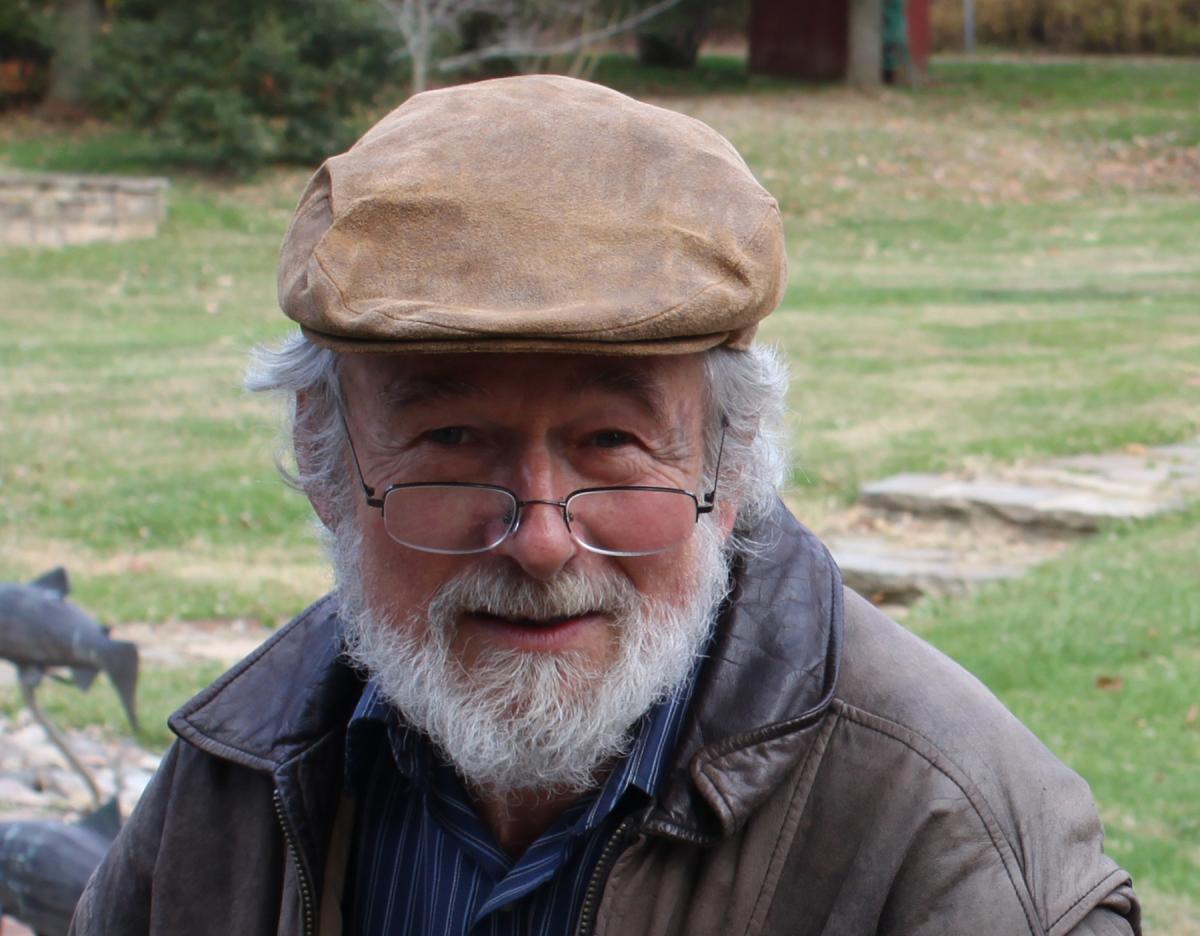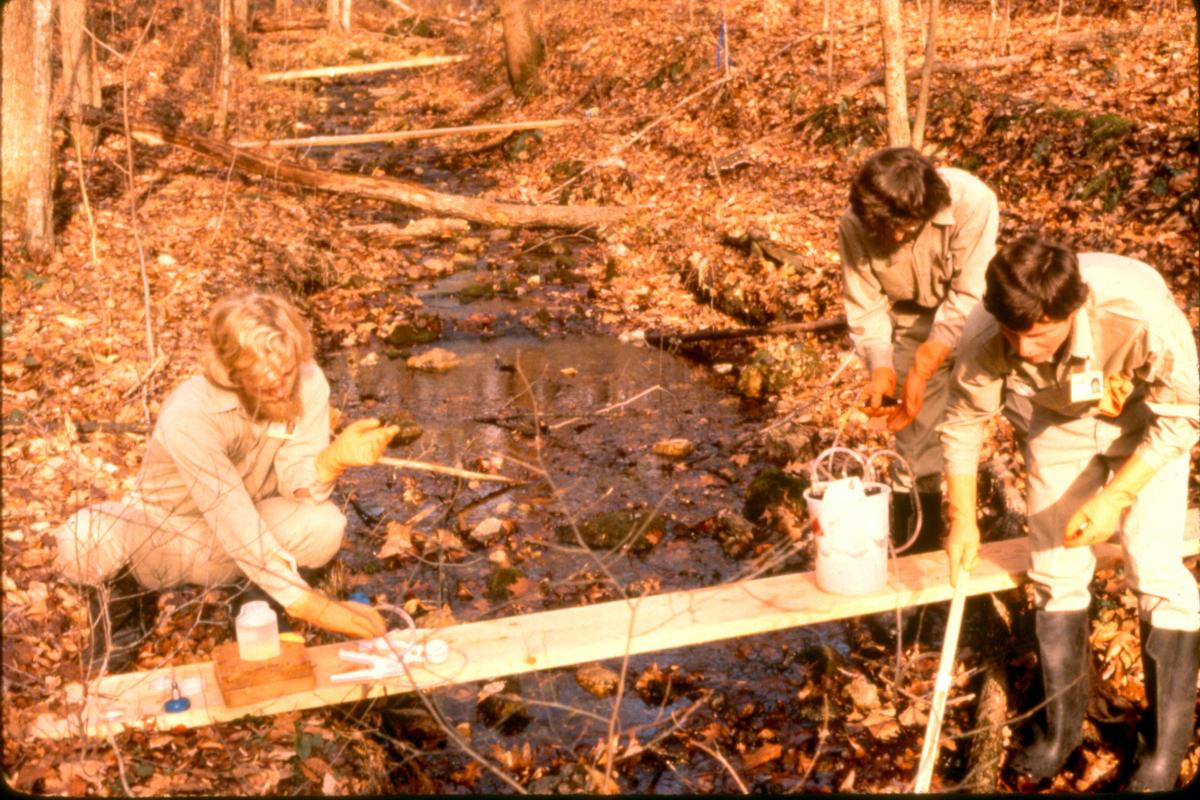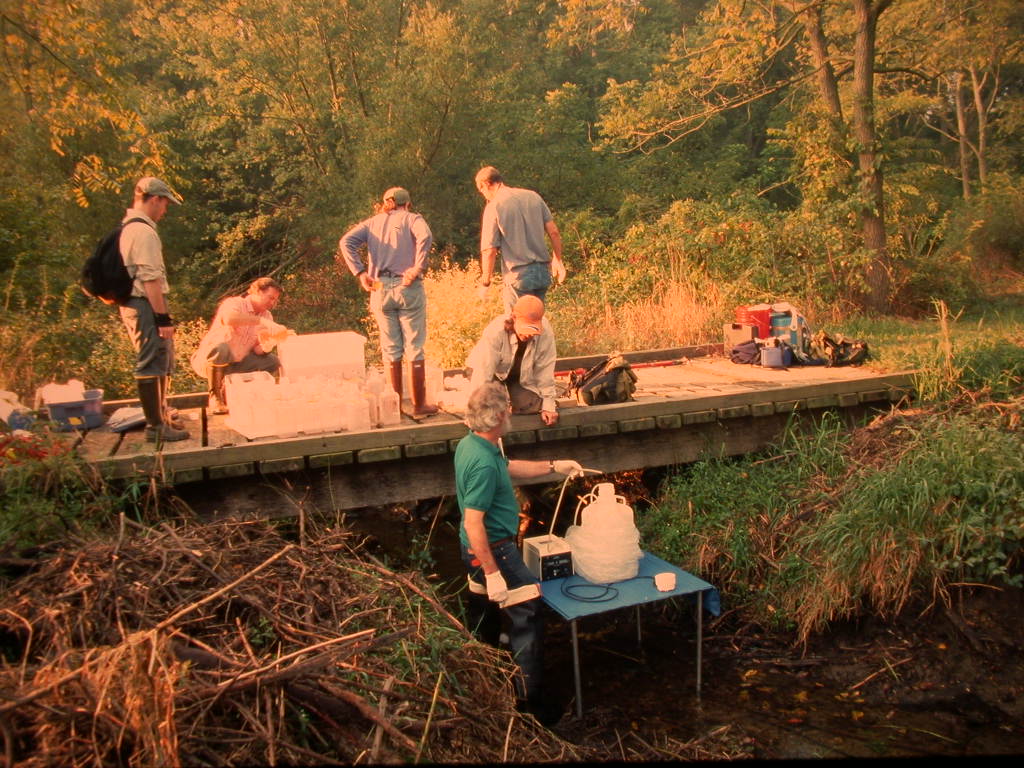2018 Fellow - Denis Newbold

Dr. Denis Newbold is a Research Scientist Emeritus at the Stroud Water Research Center in Avondale, PA. He studied at Swarthmore (BS, engineering), Cornell (MS, hydrology), and Berkeley (PhD, aquatic ecology), then did a post-doc at Oak Ridge National Laboratory (where the buzz at the time was about Jack Webster’s new concept of stream nutrient spiraling), before moving to the Stroud Center in 1983. Spiraling became a career-long interest, extending into isotopic tracing of the cycling of dissolved and particulate organic carbon in streams, and Dr. Newbold has been instrumental in showing the utility and application of the spiraling concept. Another long-term interest is in how riparian buffers protect stream ecosystems. His research has produced 57 publications, contributing to our understanding of the ecological structure and function of streams and informing general ecological theory. He has also been active with conservation efforts and assisted local government agencies.

Sampling 32P-labeled FPOM in Walker Branch TN, 1981, with Paul Singley (left) and Pat Mulholland (right).

Injecting 13C-labeled dissolved organic matter to White Clay Creek PA in 2002 with Lou Kaplan, Tracy Wiegner, and others. I’m standing in the stream.
Letter from Denis
To young freshwater scientists:
My first advice to you is to read the great advice that all the other Fellows have offered—they have said it better than I can. What a great group of people! Their advices have some themes to which I can only lend my endorsement: collaborate; be kind and honest; search for the truth; immerse yourself in the system you are working in (literally where feasible); publish your work but don’t worship the grail of publication; balance work and personal life; communicate to and engage with the public; work to save our aquatic resources.
Another theme comes through these pages loud and clear: We are privileged to be environmental scientists. We are working on issues with great meaning to our society and our earth. We get to work in beautiful places and experience nature first hand. We experience the challenge of working under harsh conditions. We get to sweep all the science and math we have ever learned into solving our problems. We get to work in a scientific community that is not only smart, but collegial, welcoming, and supportive.
This leaves me free to add a few thoughts. First, be free with your ideas. In the end, this works far better than holding them close to your chest. If your idea takes hold without your name on it, you know where it came from and that is good enough.
Second, what are we really doing? We are trying to advance the science and solve environmental problems. We are not discovering new laws. We are not searching for statistical associations; we are not searching for predictions that can be framed as hypotheses. We are trying to synthesize an amazing array of complexity, into an intellectual framework—sometimes mathematical, sometimes not—that efficiently captures the most important aspects of our problem, in a way that can be applied more broadly and can be conveyed to others.
This can be difficult. One must think hard about one’s problem. The problem must be well chosen to have significant implications either to our science or to the environmental problems we face. To think hard, one must be skeptical of received wisdom, look for logical flaws, and zoom-out for perspective.
The downside of skepticism and hard thinking is being hypercritical, both of others and of oneself. In the excitement of the chase (in quest of “truth”) it is easy to forget that human sensibilities are involved. And perceived flaws in one’s own work can allow good ideas and results to whither. I have been guilty on both counts, having learned these lessons relatively late in my career. Be acutely aware of these traps and take care not to fall in.
Denis Newbold

